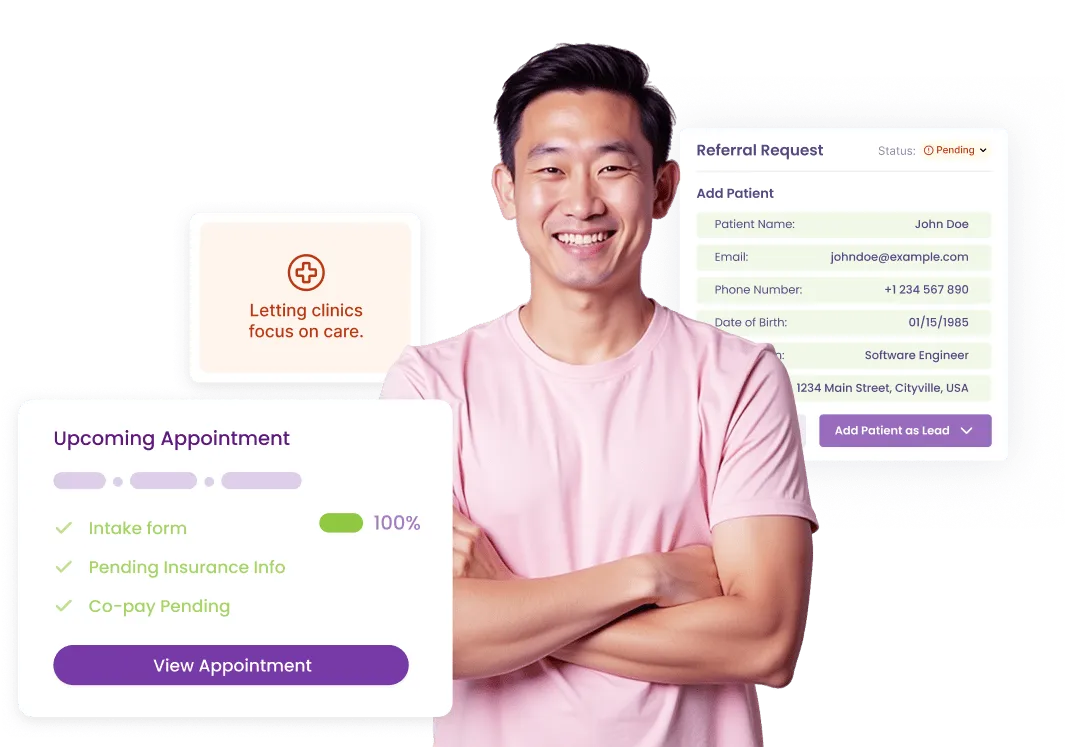H2034 – Substance Use Counseling / Behavioral Health Service
CPT code H2034 represents a distinct mental or behavioral health service, including evaluation, therapy, or care coordination.
What is CPT
H2034
?
H2034 is a specific CPT code that pertains to counseling services within the realm of substance use treatment. This code is crucial for providers offering therapeutic interventions aimed at helping individuals manage and overcome substance use disorders. Proper understanding of H2034 encompasses its clinical purpose, the expectations for documentation, and the nuances involved in payer considerations. It is essential for providers to ensure that clinical notes align with evidence-based practices, as well as to document treatment goals, interventions utilized, and the measurable progress made by patients. In instances where the code is based on time, it is critical to accurately record the start and stop times to justify the billed duration. This level of detail not only supports billing accuracy but also enhances the quality of care delivered to patients.

Documentation Tips
To ensure effective billing and audit preparedness, it is essential to document both the start and stop times when billing for time-based psychotherapy services. Providers should clearly note the therapeutic modality used (e.g., cognitive-behavioral therapy, motivational interviewing) or the assessment instruments employed during the session. Additionally, documentation should reflect the clinical focus, patient responses to interventions, and a comprehensive plan for follow-up care. For any scored assessment tools utilized, maintain copies of the completed instruments as part of the patient's record. In the case of telehealth services, documentation must include consent from the patient as well as details regarding the technology platform used for the session. Employing a structured documentation format—such as SOAP (Subjective, Objective, Assessment, Plan) or DAP (Data, Assessment, Plan)—can enhance clarity and improve audit readiness by providing a consistent framework for recording essential information.

At a Glance
- Service Type: Substance Use Counseling
- Use Case: Therapeutic Counseling for Substance Use Disorders
- Typical Setting: Outpatient clinics, telehealth sessions (subject to payer policies)
- Billing Unit: Per session or per instrument, depending on specific payer guidelines
- Common Pairings: 90791 (Psychiatric Diagnostic Evaluation), 96127 (Brief emotional/behavioral assessment), various psychotherapy codes
Billing Examples
A practical example of H2034 usage might involve a clinician conducting a session focused on relapse prevention strategies for a patient recovering from alcohol use disorder. During the session, the counselor documents the patient’s identified triggers, coping mechanisms discussed, and any updates made to the treatment plan. The counselor also evaluates the patient's progress towards their established recovery goals. It is important to note that while both group therapy and individual counseling sessions may be provided on the same day, they should be billed under different HCPCS or CPT codes according to the specific rules set forth by each payer. This meticulous approach to documentation not only supports successful billing but also reinforces the therapeutic alliance and continuity of care for the patient.
Compliance Guidelines
- Confirm payer coverage and authorization requirements prior to rendering services to avoid claim denials.
- Document medical necessity thoroughly, linking each service provided to a corresponding ICD-10 diagnosis to support legitimacy.
- Utilize correct modifiers as required (e.g., modifier 95 for telehealth services) to ensure proper processing of claims.
- Avoid upcoding by selecting the code that accurately reflects the documented time and level of service provided, as this is critical for compliance.
- Implement regular audits of billing practices to identify and rectify documentation weaknesses, minimize denial rates, and enhance overall service delivery.
Common ICD-10 Codes
Helpful links for mental health billing and documentation
- F10.20 - Alcohol dependence, uncomplicated
- F11.21 - Opioid dependence, in remission
- F19.20 - Other psychoactive substance dependence, uncomplicated
- F10.10 - Alcohol abuse, uncomplicated
- F12.20 - Cannabis dependence, uncomplicated
Additional Resources
Helpful links for mental health billing and documentation
Related CPT Codes
Helpful links for mental health billing and documentation
Got questions? We’ve got answers.
Need more help? Reach out to us.
Q1: What is the primary use of this code?
A: The H2034 code is utilized when the clinical activities performed align with the definition outlined for this code. It is imperative that all documentation supports the billed service to ensure compliance and reimbursement.
Q2: Is telehealth an acceptable modality for billing this code?
A: Yes, many payers do cover telehealth services, provided that the service is delivered synchronously and that appropriate modifiers and patient consent are documented. It is advisable to review specific payer policies for any additional requirements.
Q3: What types of documentation might payers request for this code?
A: Payers may request documentation that includes the duration of the session, the therapeutic techniques or assessment instruments employed, patient responses, and a clear linkage to a covered ICD-10 diagnosis.
Q4: Can H2034 be billed alongside other services?
A: Yes, when billing for multiple services, it is critical to document distinct time frames and rationales for each service provided. Additionally, adhere to any applicable add-on codes or evaluation and management (E/M) separation rules.
Q5: What are some common reasons for claim denials related to this code?
A: Common denial reasons include missing records of session time, documentation lacking medical necessity, incorrect modifier application, or billing exceeding frequency limits set by the payer.

